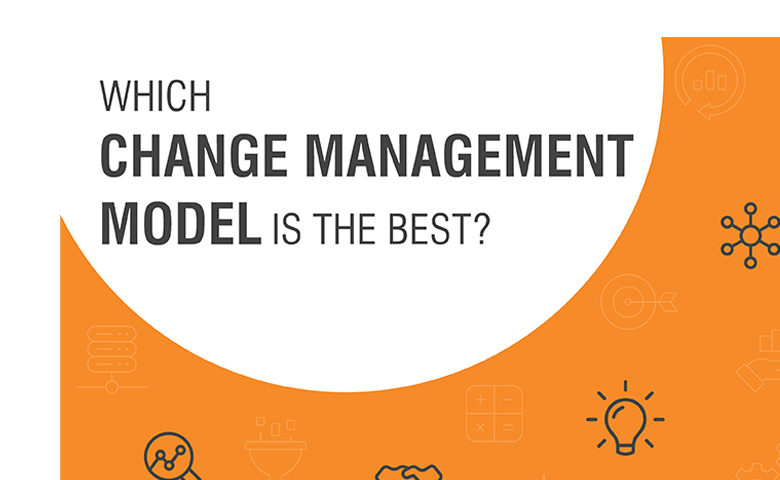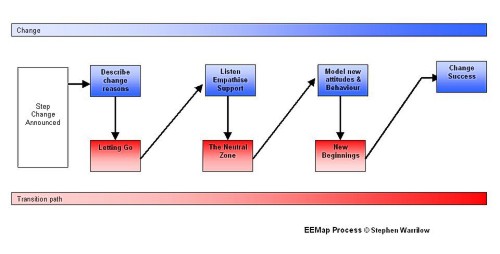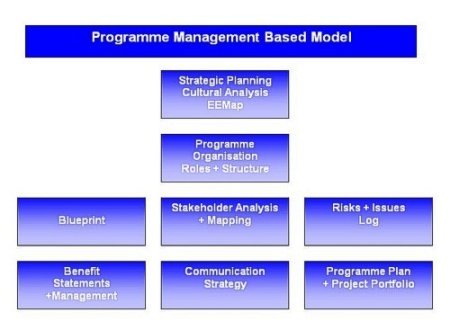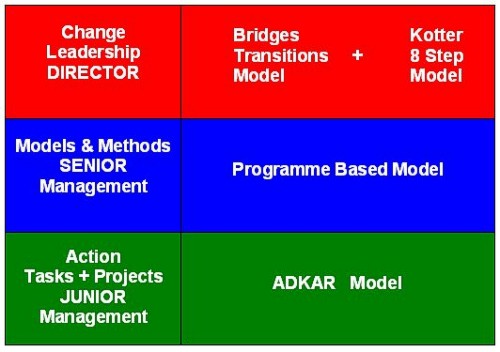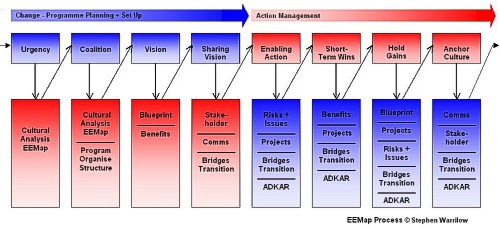|
Change Management ModelsHow Do They Help in the Current Climate
Change management models featured on this site: Kurt Lewin - freeze phase. Force Field analysis -[Kurt Lewin] Kubler -Ross - change roller coaster ADKAR - the Prosci change model Kotter - 8 guiding principles for change management Beckhard - the change equation Bridges - navigating the transitions of change Longaker - the 4 major phases of change Conner - the do's and dont's of ongoing turbulence
An introduction to change management theoriesHere is a brief introduction to the main change management theories mentioned above.
Maturity modelsIn most organisations the evolution of project management, programme management and change management skills typically lags far behind the development of other capabilities within the company. So the state of maturity to a large degree reflects the prevailing dominant corporate culture. Where you and your organisation sit on these maturity models is one of the key factors in leading change that will determine your chances of success. Project management maturity model Change management maturity model Business process maturity model
The people aspects of change is the overwhelming issueChange management models have clearly evolved from the days of Kurt Lewin's freeze phases model which was very much a product and reflection of the industrial age - with the emphasis on command control imposed from the top down. Since Kubler Ross, the concept of an emotional journey through a recognisable path of reactions and responses has been recognised and factored in to many modern change management models.
Psychological impacts of change and managing the transitions
William Bridges has taken this a stage further with his model that focuses on transitions and the psychological impacts of organisational change and that speaks of developing a culture that embraces change.
Clearly people react at different paces and levels to change and whatever change model is adopted, this needs to be given serious attention. Many of the more recent change management models place great emphasis on the need for determining the need for change, articulating the desired future and the use of some form of transitional model. In my opinion it is William Bridges - who recognises that it is people who have to carry out change and with his clear emphasis and understanding of what change does to employees [and what they do to the organisation] - who really was the first "management guru" to provide any real sense of the emotional impact of change and what can be done to keep it from disrupting the entire organization. So in my view, any change management models theories or concepts that directly address the people issues, has particular resonance and practical relevance in the current climate and adds values to our understanding of strategies for managing change.
The
programme management based model
that I have detailed in this site addresses all of these critical areas by focusing on a holistic approach that takes full account of the people issues.
The programme processes of
establishing a blueprint
of the changed organisation, with clearly defined
benefits of change
and thorough attention to the
stakeholder mapping and analysis
will facilitate the creation of detailed
communcation strategy
that addresses key stakeholder concerns.
Learn HOW TO APPLY this in 8 FREE Introductory Lessons - HERE
Relationship and positioning of major change models
Change is a messy business fraught with complexity, and many factors that can go wrong. There are 3 key themes that need attention:
Change management methodologies
|


